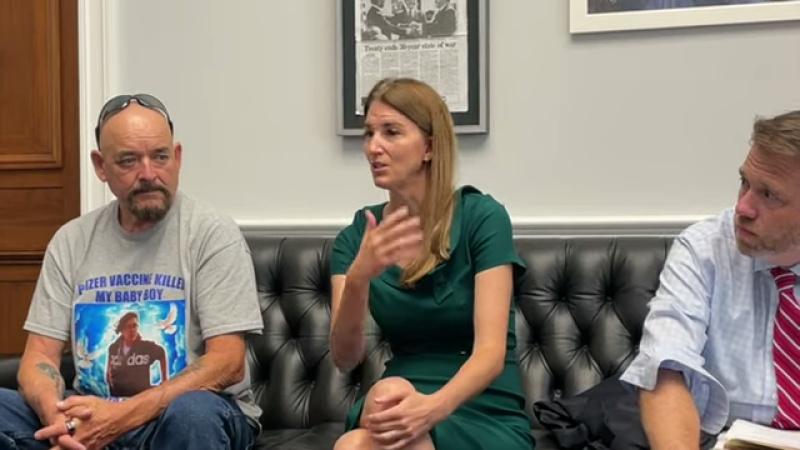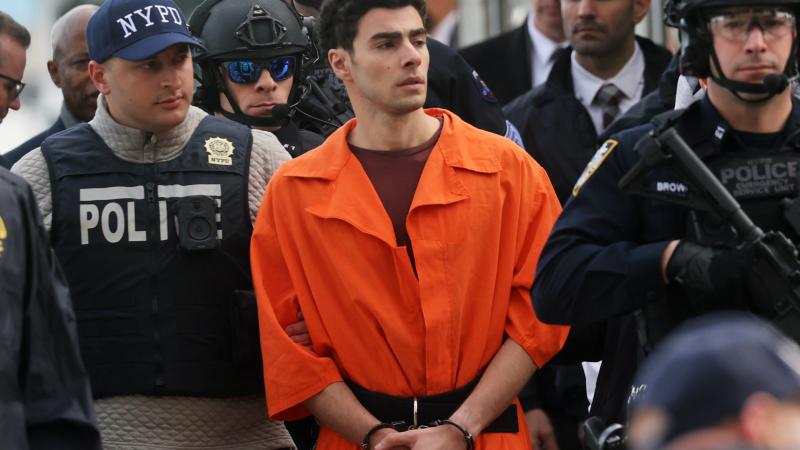Michigan state legislature considers election bills undermining election integrity, critics warn
Poison-pill legislation? Michigan's National Popular Vote legislation -- pushed by the outgoing Democrats -- "would hand all political power to the large urban areas like New York City and Los Angeles, and it would silence the voices of individual states and the people in those states," Patrice Johnson said.
The Michigan state legislature is considering several election bills which would undermine election integrity if enacted, according to election integrity proponents.
The election bills that are being considered for passage by the lame-duck session of the state legislature are the Michigan Voting Rights Act, National Popular Vote legislation, and restrictions on voter roll transparency and election challengers. Election integrity advocates are concerned about the negative impact these bills will have on elections, from creating a “lawfare state” to changing how the state will allocate its electoral votes.
The Michigan state legislature is considering these election bills before Republicans begin next year with a majority in the lower chamber.
In the Michigan state House, Democrats currently have a two-seat majority. However, following the general election last month, Republicans will have a six-seat majority when the new legislative session begins next year. The Democrats also have a two-seat majority in the state Senate.
Election integrity advocates in Michigan warned about bills in the state House that, if passed, would make the state part of the National Popular Vote Interstate Compact and assign its electoral votes to whichever presidential candidate wins the national popular vote (NPV).
During the lame-duck session that ends this month, state House bills 4156 and 4440 were placed on the chamber’s calendar for a second reading on Wednesday. The first bill would enter the National Popular Vote Interstate Compact, while the second would explain how the state would change the allocation of its electoral votes. The bills were put on the legislative agenda last month, but were then removed after election integrity proponents warned about the impact of the legislation.
Political parties in each state nominate people to be the presidential electors for that state prior to Election Day. In 48 states, including Michigan, electors for the Electoral College are chosen by a “winner-take-all" system, meaning that whichever political candidate receives the most votes statewide gets all of the state’s electors.
However, the two House bills would make Michigan’s electoral votes go to the presidential candidate who wins the NPV.
Seventeen states and Washington, D.C., have become members of the National Popular Vote Interstate Compact, resulting in 209 total electoral votes. If Michigan and its 15 electoral votes join the compact, then the total would be 224 electoral votes.
The compact is currently only 61 electoral votes away from taking effect. According to the compact, the NPV bill will take effect when enacted into law by states possessing 270 electoral votes — a majority of the total 538 electoral votes.
Patrice Johnson, chair of Pure Integrity Michigan Elections (PIME), told Just the News on Tuesday that the bills will make Michigan’s votes less impactful in presidential elections.
“If Michigan were so foolish as to adopt NPV, it would hand all political power to the large urban areas like New York City and Los Angeles, and it would silence the voices of individual states and the people in those states,” Johnson said.
"DEI on steroids"
“Our nation was founded on a federal system of states’ rights, so the people with differing needs in the various states could have their voices heard. Take that away, and this nation would move a giant step toward mobocracy,” she continued.
“NPV is a death knell to the republic, to state’s rights, and to the differing needs of people in the various states. If NPV passes, we can kiss goodbye to the beautiful Great Lakes because populous areas like metropolitan Los Angeles, which has a bigger population than all of Michigan, would have greater influence on our nation’s President.”
Meanwhile, the Michigan state House placed the Michigan Voting Rights Act on its calendar for a second reading on Wednesday, which includes Senate Bills 401, 402, 403, and 404 that were passed by the upper chamber in September.
The Michigan secretary of state’s office has promoted the bill package, arguing that it “will expand on the original federal Voting Rights Act, add new protections for Michigan voters, and make good on the promise of the 15th Amendment – that no citizen be denied the right to vote based on race.”
The secretary’s office said that the package is needed following the 2013 U.S. Supreme Court decision Shelby County v. Holder, which “gutted a powerful provision in the Voting Rights Act of 1965, undermining a law widely regarded as the most effective piece of civil rights legislation in American history.” Because of the Supreme Court’s decision, “nearly 100 new laws restricting voting access have been passed by states – including Midwestern states like Wisconsin, Ohio, Indiana, and Iowa,” according to the secretary of state’s office.
"A lawfare state"
Johnson told Just the News on Tuesday that “this bill package hands over local government control to our state government, and it is DEI on steroids ... It authorizes ranked choice voting, which has failed everywhere and is highly unpopular, not to mention that RCV knee-caps the one person, one vote principle and it cannot be audited.”
She added that “MVRA creates a lawfare state. It enables law firms and public interest nonprofit law firms to sue local governments on crackpot charges. Then while the lawsuits drag on for years, the state government seizes control of the townships and municipalities. The MVRA even allows the courts to take over redistricting while court cases drag on.”
“Instead of fixing the state’s bloated voter rolls,” Senate Bill 402 “authorizes a completely new database to encompass massive amounts of data on Michigan elections and voting histories to be managed by a large unnamed university in Michigan at millions of dollars of expense,” Johnson said.
Another election bill on the Senate’s agenda on Thursday would penalize false statements made regarding elections and enforce a maximum civil fine of $1,000 for each violation. “An individual who intentionally makes a false statement or misrepresentation to another individual concerning … [t]he time, place, or manner of an election,” and the “qualifications for or restrictions on voter eligibility,” Senate Bill 707 reads.
An additional election bill clarifies the role of election challengers, including placing restrictions on them. Senate Bill 1068 allows election inspectors to only be challengers during the early voting period, but not on Election Day. The rationale for the bill is that during the 2020 election, “challengers concerned about voter fraud engaged in disruptive behavior, harassing and distracting poll workers,” according to the Senate’s bill analysis.
The bill was passed by the Senate on Tuesday and has been sent to the House. Johnson said Tuesday that the bill “puts handcuffs on challengers.”
"Without voter roll transparency, there is no election accountability," the Michigan election integrity group PIME announced Monday. "Any legislation restricting access to the voter rolls, except in very limited circumstances, needs to be OPPOSED."
The Facts Inside Our Reporter's Notebook
Links
- two-seat majority
- six-seat majority
- two-seat majority in the state Senate
- House bills 4156 and 4440
- legislative agenda
- election integrity proponents warned
- members of the National Popular Vote Interstate Compact
- 61 electoral votes away
- 401
- 402,
- 403
- 404
- promoted the bill package
- secretaryâs office said
- according to the secretary of stateâs office
- Senateâs agenda
- Senate Bill 707
- Senate Bill 1068
- Senateâs bill analysis
- passed by the Senate
- PIME announced














